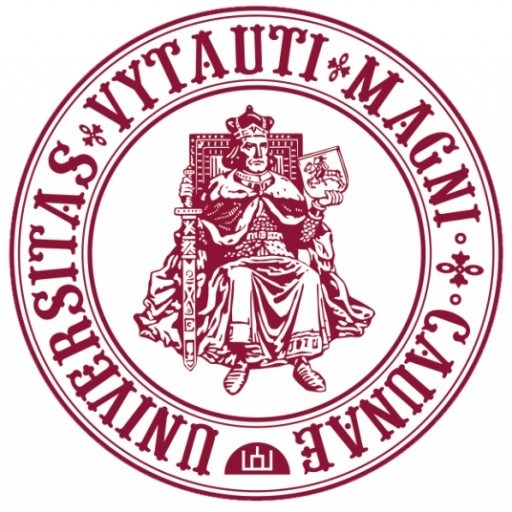Photos of university / #unibirmingham
The MSc in African Studies with Development at the University of Birmingham offers a comprehensive interdisciplinary approach to understanding the diverse social, political, economic, and cultural landscapes of Africa. This program is designed for students interested in exploring the complexities of African societies and their processes of development within a global context. Through a combination of rigorous academic coursework and research, students gain in-depth knowledge of African history, politics, economics, and cultural dynamics, alongside development theories and practices. The curriculum emphasizes critical thinking and analytical skills, enabling students to evaluate contemporary issues such as development policy, governance, conflict, and social change on the continent. The program also provides practical insights through case studies and fieldwork opportunities, fostering an applied understanding of development challenges and strategies. Students will have the chance to engage with expert faculty members renowned for their research in African studies and development, benefiting from a vibrant academic community that encourages debate and scholarly exchange. The programme prepares graduates for careers in international development organizations, NGOs, government agencies, research institutions, and further academic research. It also facilitates a nuanced understanding of Africa’s historical context and current affairs, equipping students with the analytical tools necessary to contribute meaningfully to policy-making, development projects, and academia. With a flexible structure, the MSc in African Studies with Development allows students to tailor their studies to their interests and career aspirations, combining core modules with options focused on specific regions or themes within Africa. Overall, this programme aims to develop graduates who are well-informed, critically engaged, and capable of making a positive impact in development sectors focused on Africa.
Detailed Course Facts
Application deadline None, but early application advised Tuition fee Not specified Start date September 2015 Duration full-time 36 months Languages Take an IELTS test- English
Course Content
For African Studies with Development students, the first year provides foundation courses in the sociology, history, development, politics and cultures of Africa. In the second year students build their disciplinary expertise with a new specially-created 20-credit course on history, theory and methods of development. The final year culminates in a dissertation, where you explore a specific area of Development, drawing on the knowledge and inter-disciplinary skills that you have built up over the degree programme.
First year
Focus on studying societies is concerned with core study skills, taking you through all the steps of researching, planning and editing an essay, and enabling you to pursue a group investigation and present your findings orally. You will receive detailed one-to-one feedback on your assignments, and this should help you with your other modules. Doing development introduces you to the history, theory and methods of development. Your understanding of what 'development' might mean and how it might be undertaken in the African context will be built up through your remaining core modules, which introduce you to the politics, environments and societies of Africa. In addition to your 60 credits of compulsory modules, you take either 60 credits of optional modules in African Studies, or 40 credits of African Studies modules plus a 20 credit Module Outside the Main Discipline.
Compulsory modules
- Doing development
- Focus on studying societies
- Introduction to African politics
- Introduction to African societies
- Introduction to geography and Africa
African options
- Introduction to African culture
- Introduction to African history
- Introduction to African politics
- Thinking anthropology
Second year
In your second year, you will study the theory and practice of development, considering real life examples of development projects and agencies in Africa and beyond. In addition to Aid, NGO's and development, you will also take Perspectives on Africa, which is concerned with issues of immediate importance in contemporary African societies, and which develops your skills in researching, planning and presenting your own projects. You can then choose either 80 credits of African Studies optional modules, or 60 credits of African Studies modules plus a 20 credit Module Outside the Main Discipline.
Compulsory modules
- Aid, NGO's and development
- Perspectives on Africa
Options (second and third year)
- The African cannon
- African popular culture
- African new writing
- African religion and ritual
- Atlantic slavery: West Africa and the Caribbean
- Caribbean fiction
- Caribbean poetry
- Ghana: state and society
- Independent study
- Gender and development in Africa
- Rural livelihoods and development interventions in West Africa
- Social life of the economy
- South Africa in the 19th century
- South Africa in the 20th century
- South Africa since apartheid: politics and culture
- Theory, ethnography and research
- Trajectories of emancipation
Third year
In your final year, you can choose your taught modules from a list available within the department. Students will be taught in a combination of lectures and seminars and will be able to develop more specialised knowledge and analytical skills, often drawing on the first-hand research experience of their tutors.
Final year students take one 40 credit dissertation, plus 4 modules of 20 credits each from the list above, of which one may be a Module Outside the Main Discipline. The number of taught modules is slightly fewer in the final year because of the emphasis that we place on the Dissertation (40 credits). This is the culmination of the enquiry-based learning that students have been working towards throughout their degree programmes. With the guidance of an academic supervisor in a series of one-to-one meetings, you will have the opportunity to identify a topic that is of particular interest to you, formulate relevant and interesting questions, search for and evaluate different sources of information, and present your findings and conclusions in a 10,000 word dissertation.
In order to support you through this potentially daunting task, we arrange a series of workshops in which students present their work-in-progress, and receive useful feedback from members of the academic staff and their fellow students. Your supervisor will also read and comment on your drafts in order to help you produce a well-organised and well-presented piece of work. Successful completion of a dissertation enables students to demonstrate a wide range of skills that are transferable to employment and to further study.
English Language Requirements
CAE score : 80(Grade A)
To study at this university, you have to speak English. We advice you to
take an IELTS test. More About IELTSRequirements
Number of A levels required: 3
Typical offer: BBB
International Baccalaureate: 32 points
General Studies: accepted
Additional information:
Other qualifications are considered
We expect applicants to have an interest in Africa rather than a detailed knowledge of the continent
Work Experience
No work experience is required.
Related Scholarships*
- Academic Excellence Scholarship
"The Academic Excellence Scholarship can provide up to a 50 % reduction in tuition per semester. These scholarships will be renewed if the student maintains superior academic performance during each semester of their 3-year Bachelor programme. The scholarship will be directly applied to the student’s tuition fees."
- Access Bursary
Bursary for UK students all subjects where the variable tuition fee rate is payable.
- Alumni Bursary
Alumni Bursary for UK Undergraduate students
* The scholarships shown on this page are suggestions first and foremost. They could be offered by other organisations than University of Birmingham.
The MSc in African Studies with Development at the University of Birmingham offers students an in-depth understanding of the social, political, economic, and cultural aspects of Africa, alongside development studies. The program combines interdisciplinary approaches to explore issues of development, globalization, and African agency within historical and contemporary contexts. Students will engage with core themes such as governance, economic development, conflict, health, and education, with particular attention to regional diversity across the continent. The curriculum is designed to develop critical analytical skills and a comprehensive understanding of development policies and practices relevant to African societies.
The program is typically structured to include compulsory modules that cover foundational topics in African history, politics, and development studies, complemented by optional modules tailored to students’ specific interests. Conducted over one year for full-time students or two years part-time, the program involves a combination of lectures, seminars, case studies, and independent research. Students will also undertake a dissertation that allows them to investigate a specific issue in African Studies with Development in greater depth, employing research methods suitable for their topic.
The University of Birmingham promotes a collaborative learning environment, with access to extensive resources including specialized libraries, research centers, and fieldwork opportunities. The program attracts both recent graduates from social sciences and humanities backgrounds and professionals seeking to deepen their understanding of African development issues. Graduates of the program typically pursue careers in international development organizations, NGOs, government agencies, academia, or consultancy roles requiring expertise in African affairs. The program aims to produce graduates who are not only knowledgeable about Africa’s complexities but also equipped with practical skills applicable to real-world development challenges on the continent.
Throughout the course, students benefit from the expertise of academic staff with extensive research experience in African politics, history, and development. The University of Birmingham’s global partnerships and research centers support vibrant academic exchange and practical engagement with African issues. Overall, the MSc in African Studies with Development prepares students for impactful careers in identifying, analyzing, and addressing development issues in African contexts, bridging academic theory with applied development practice.










